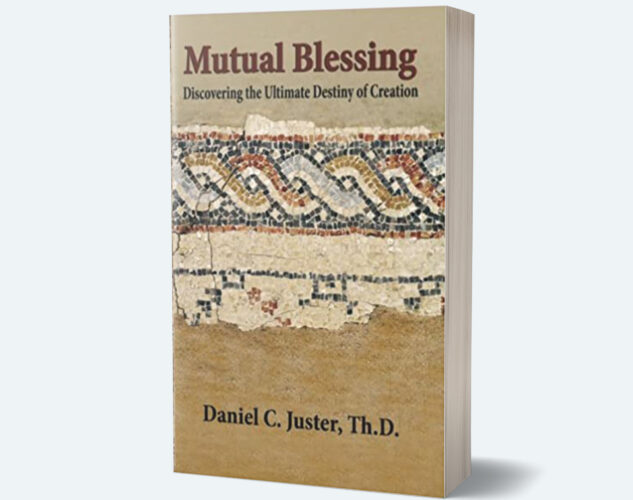Not long ago I read a very good book by Pastor Timothy Keller of New York. He is a wonderful writer and an amazing apologist. Part of the book deals with the biblical world view over the leftist world views that align with critical theory, an approach to philosophy, literature, politics, and sociology that came from professors from Frankfurt, Germany. Shortly after that, I read a book recommended by Keller on critical theory. Today, that critical theory orientation has to be joined to a post-modern relativism, which was not the orientation of critical theory professors. Many of these professors were Jewish Marxist atheists. They fled to the United States in the 1930s. Some stayed and became professors in the U. S. Herbert Marcuse was one of the more famous of these thinkers. He was known as the philosopher of the New Left in the heyday of the student protests during the Viet Nam war. When I was at Wheaton College at that time, Marcuse’s name sometimes came up. Francis Schaeffer, the famous thinker of that era who directed the L’Abri Center in Switzerland, did summarize his thinking and gave a critique. However, that is as far as it went for me. My interests were elsewhere. As an undergraduate philosophy major and then graduate school philosophy major, we studied the famous Martin Heidegger, Sartre, and Wittgenstein but Marcuse was not in our assigned readings. I did read Eric Fromm’s The Art of Loving. I liked it very much but did not realize he came from this school. The original professors did go in different directions in many ways according to the summary I read.
The general idea among conservatives, and it rings true to me, is that the radicals of the 60s along with many others on the left invested themselves in education and the culture formation institutions of the nation. The Jesus revolution people did not do this. The result is that we are now, in the violent aspects of the Black Lives Matter protests (not the majority for sure), seeing the harvest of the sowing of the radical ideas of those days. It is thought that there is a clear line of influence from the 60s to now. It would take a rather massive study of professors and their academic influencers to see if this is true, but it seems to fit.
I, therefore, read two books by Marcuse, One Dimensional Man, and Essay on Liberation. The former is much more difficult work and without some knowledge of philosophy would be difficult going. It deals with Hegel, Heidegger, British philosophy, and much more. Marcuse is an atheist but believes that we can derive our values from understanding our common biological nature. He gives much credibility to Sigmund Freud. In my senior year at Wheaton, I did an extensive 75 page paper on Freud for a Personality Theory, course. By this time, Freud was very criticized, and most personality theorists had moved passed him. However, I wanted to study him since he was the father of modern psychoanalysis. I read everything I could get in English book form. The second book Essay on Liberation was a much easier read. My friends might find some parts hard, but I think most can read this short book and get the gist. I highly recommend reading it. It is not that the radical violent protesters are reading it, but somehow the ideas among them, that their leaders put forth, are amazingly parallel to the ideas in Marcuse. Is there a direct connection? Again, I don’t have knowledge of this. However, the level of assertion and parallel argument is amazing. I write this so my friends can be informed on the root ideas and compare them with a biblical world view. So now a summary.
Marcuse blasts the modern technological society of his day. He calls the order of that society corporate capitalism. Here is a list of his indictments. First, it enslaves people to work, much of it menial and repetitive for the sake of profit. It produces superfluous products that are not needed for the sake of making a profit. It, though advertising creates a psychological need for these products. The system then is given to waste and planned obsolescence so more can be sold, and more profit can be made. The system is so insidious. It actually makes products from the protest. Witness Nike today profiting from Kaepernick’s protest for black lives. Nike can sell a lot of sneakers from this. Protest is coopted by product. Corporate capitalism destroys the environment from exploiting raw material to make its products. It pollutes the earth with its waste. It exploits the poor nations of the third world through a corporate colonialism. To keep the system going, it creates a huge military-industrial complex and goes to war, committing many war crimes. It also prevents moderating population growth. Abortion rights and birth control are important to mitigate this problem. I should note that Marcuse also blasts the modern analytic atheist philosophies that elevate scientific materialism, or positivism, as the only meaningful philosophy whereby there is no metaphysical truth and only empirical knowledge counts. He sees this as part of the very false structure to be overcome.
As a pastor, I well knew how the economic/ business world could dominate the lives of some of my members to the point of wearing them out. Some were in hi-tech jobs. I thought that hi-tech people needed unions!
Somehow Marcuse believes that a much better world is possible. That is the world of socialism where a rational elite leadership would direct production to really meet the needs of all, beginning with the poor. In this vision, work would become more and more artistry. More parks would be built than roads. People would treat one another with tenderness and would not exploit one another. Technology does hold promise, but not in the hands of the capitalists. Technology now holds the promise of freeing human beings from drudgery in their work. It can replace labor in many regards, and all can share the fruit of that gain. People will be given to art and relationships. Also, as per Freud, some of the sexual restrictiveness would be loosened, not in a wild hedonism, but in a greater liberty to choose relationships and arrangements. The idea of the nuclear family and sexual repression in the West has to be overthrown. This fits the idea of so many of today’s radicals being against the nuclear family.
The whole democratic ideal in the United States and the West is an illusion. The choice is only within the limits allowed by the powers that be. It is no real democracy at all. People are lulled to complacency by thinking that it is real. Marcuse says he cannot say much more on what it would look like and how it would succeed, but that chance has to be taken that something better will grow up as a new world is built with trial and error going forward. The idea then is negative protest. The negative itself the negation, is a key to the way forward even if the future is not clear. The only way to get from here to there is to tear down the system. The whole thing has to fall. The false so-called democratic system has to fall.
Before going to his prescription for revolution as he supported the student revolts of his day and no doubt would in our day as well, is to note the glaring philosophical and historical weakness. First, as the British atheist author and historian Tom Holland argues, the very values of the worth of human beings, of tolerance, tenderness and mutual support is based on biblical foundations. For Marcuse, these values arise out of our mutual biological roots of sympathy (whatever is that?) and is based on a Freudian analysis of human drives, sublimation of the libido for artistic endeavor, and balancing the drives and libido with both greater liberty and more of an artistic human life. The Freudian theory of personality does not get us to a humane existence. Rather, that route is by seeing human beings in the image of God and a higher analysis than the id, ego, and superego of Freud. An atheist British historian recently wrote an amazing book, Dominion: How the Christian Revolution Remade the world. The reviewer notes, “While studying the ancient world he realized something, the ancients were cruel, and their values utterly foreign to him. The Spartans routinely murdered “imperfect” children. The bodies of slaves were treated like outlets for the physical pleasure of those in power. Infanticide was common. The poor and the weak had no rights. How did we get from there to here? It was Christianity, Holland writes. Christianity revolutionized sex and marriage, demanding that men control themselves and prohibiting all forms of rape. Christianity confined sexuality within monogamy. (It is ironic, Holland notes, that these are now the very standards for which Christianity is derided.) Christianity elevated women. In short, Christianity elevated the world. In fact, Holland points out that without Christianity, the Western world would not exist. Even the claims of the social justice warriors who despise the faith of their ancestors’ rest on a foundation of Judeo-Christian values. Those who make arguments based on love, tolerance, and compassion are borrowing fundamentally Christian arguments. If the West had not become Christian, Holland writes, “no one would have gotten work.”
Basically, I conclude and will return to this, that a neo-Marxist/Freudian foundation for understanding human beings will not lead to social progress. We are now into the territory of clashing world views on the most profound level, the biblical over against the secular socialist world view. When I speak about this, I understand that the world view of the United States was not a nation submitted to the Biblical world view coherently, but many of its foundational ideas were biblical and did have a foundational shaping role in the culture. As those foundations are destroyed, the culture direction will inevitably lead to destruction.
Now in returning to Marcuse, we find that his prescription for his way forward amazingly fits the far left, the agitators, the cancel culture, the so-called woke (who have drunk the cool-aid as we say), and the violent protesters of Antifa and other assorted groups, and the radical Marxist wing of the Black lives matter movement (the leaders of the official organization).
First, in his neo-Marxism, Marcuse was disillusioned with the Soviet Union and its brutality. He saw it as partaking of some of the very same errors of the Corporate Capitalists. He rather looks for a new socialism that will not be oppressive.
It then becomes important to accept that the Marxist revolt by the workers (proletariat) is not possible. Because of the material gains in their class, the improvements for workers, the directions their unions took in supporting the system, and in the pleasures offered, the banal entertainment, and in the propaganda of the media, the working class will not carry us to revolution. It is as if they do not know how oppressed the system is and how evil it is according to the list of such things above. The revolution will come from professors and students, elitists. They can see it and be enlightened to a new consciousness. This is amazingly parallel to what people mean by “woke” today, However, they need a partner in revolution. It is not the worker but the most marginalized members of the society who can be mobilized with them. It will be those in poverty, the blacks, the sexual deviants and all those who are left out of the false advances of corporate capitalism. Their real hope is the destruction of corporate capitalism. This partnership will be the key. They can be given messages, a narrative from the elite that will mobilize them to tear down the system. Some violence will be necessary.
As part of this the movement, there will be an anti-police and anti-military emphasis. Why? Because the police are a key to maintaining the peace that upholds the system. This fits defunding the police today and the very anti-police orientation of the violent protesters. It does not matter if the police are black; they support the system.
In addition, language must be redefined. Changing how we use language is a key to subvert the system. Hove you noticed how much this is the case. For example, those disagreeing with the homosexual lifestyle are attacked by a new language. They are called homophobes. But phobia was fear of not disagreement. No matter, it is the new label. It is defined as hate. Those who do not buy the new definitions are canceled, attacked, vilified. This is so on every issue, including trans-sexuality, abortion (women’s health), men in women’s sports. Now I am not saying this was in Marcuse’s thought explicitly, but the method of cancel culture was there as well as bending language to be a tool of revolution. The marginalized can only find their liberty and fulfillment in a fully socialistic system were the means of corporate production are owned by the people through the government which rationally plans production and distribution.
This raises several questions for those in today’s protests who say they want to destroy capitalism. Part of the Black Lives Matter movement is being used by the revolutionaries. It is a cloak for them to tear down the society. Many do not know what they are involved in. They do not need to know as long as they can be used to destroy the system, and those largely white young people from the middle and upper middle class who have co-opted the protest, believe it will be to the ultimate betterment of the marginalized.
Where does the silicon valley elite fit in? Social media is a huge and dangerous group of monopolies. They are able to skirt the laws against monopolist control by claiming to be neutral platforms, but it is clear that they foster the left and seek to marginalize conservatives by their practices. They also skirt the monopolistic laws by saying their products are cheaper and benefit the people. However, monopoly law has to be changed to limit huge concentrations of power. Those who gain control of the media have the ultimate power in forming public opinion without regard to factuality or true debate. By limiting what can be seen and reported, they skew news to foster their political objectives. However, we do not know those objectives. Are the anti-capitalist neo-Marxists? I have not seen evidence for that. If they were, they would have amassed their great wealth as a means to get us to the socialist goal. Or are they Fabians, those who seek socialism by gradual change not violent revolution. Or are they simply elitist liberals that seek to move society in the direction they seek with their enormous power? I wish we could know the answer to these questions. They seem to see themselves as an elite who can tell us what is factual, what is to be banned, or what is or is not to be seen.
Where does Black Lives Matter fit? The reasons for the continued pain of the black underclass should be a concern for all. However, in my view, this problem is as much from liberal policy over the last 60 years as it is from racism. I don’t think it is a race thing, but a poverty thing. Imagine if the Appalachian white poor had the same numbers as the black underclass and populated the cities with the same patterns of family, failing education, and drug wars. The police might respond in the same way as to blacks. Yes, there is brutality and disparate treatment, but it is not the first order of the problems. It is family stability, crime, educational opportunity, and more. And in my view, only the Gospel can lift this community. The Church is really guilty of failing the underclass black community.
A much better analysis of the problem of modern technological corporate capitalism is found in Jacques Ellul, The Technological Society. This book, written in the same era, points out some of the same painful realities of corporate capitalism. However, as a committed Christian he pushes reforms, not revolution. Some of those reforms have already taken place. Much more is needed. However, let’s look more closely at a Biblical response to all this.
First, I believe that any lasting social progress is dependent on a return to a Biblical world view orientation. That will only come through the progress of the Gospel and revival. Without that, I believe we are sunk.
Secondly, we have to look at Biblical definitions over against Freudian/or Marxist ideas. One will not find a convincing motivation for treating one another well on our common biological inheritance, but only in the idea of the worth of every individual created in the image of God. Biological unity does not produce ethical norms. This is pure fantasy and hope without any foundation. It will not lead to long-lasting human betterment and mutual kindness.
When there is sufficient progress through the Gospel, what should be our orientation to the larger society? First, we need to understand that biblical justice is not equality, but an order whereby every individual can be empowered to fulfill their God-intended destiny. The Gospel is part of justice itself and delivers people from victimhood and empowers. The question then comes as to whether free enterprise or socialism best provides for the fulfillment of justice. The evidence is overwhelming that socialism can never expand the pie sufficiently to lift the people. See Michael Novak’s great book, The Spirit of Democratic Capitalism. Also, see his book on socialistic liberation revolutions, Does it Liberate? The question of socialism and capitalism is an empirical one, not primarily a theological one. Which works best to fulfill the purpose of improving human life?
Having said that, there are enormous problems. The biggest is crony capitalism. The market is distorted by lobbies, government leaders favoring those corporations that empower them. Capitalism requires regulation and incentives to produce products that are of value to people and not destructive of the people or the environment. Too much power in a few needs to be disallowed and new definitions to preclude monopolistic power in a day of hi-tech are crucial. So, with regard to pollution, planned obsolescence (we now see this all the time with computers, software, hand-held devices–you can no longer get the software for your old device that you spent $1000 for a few years ago!) Yes, some of the problems Marcuse sees are real problems but are to be addressed constructively. However, they are to be changed by democratic means whereby laws set the parameters of free enterprise and give incentives to produce what is good or at least limit the bad. For believers, we should only invest in companies that make products that improve human life.
What of the claim that the democracy of our society is a lie? Well, the founders of the United States claimed that they founded a republic, not a democracy. They were very clear that the vote was only one aspect of the system. Rather, myriad competing interests would keep a check on power in the hands of two few. Contrary to Marcuse, and in agreement with the founders, and the Bible, trusting an elite to do good and not to be in power for themselves is way beyond a true analysis of human character. It is really wishful thinking. Fallen human beings are given to sin. Power corrupts and absolute power corrupts absolutely. We should support checks and balances.
I am troubled that believers join with those who are anti-biblical in their world view as a way to seek social progress. The vile hatefulness of today’s protestors shows the opposite of a Gospel stand. The revivalist abolitionists of the 19th century provide the model. First the Gospel and revival and then agitation for social change. However, that change comes from changing hearts, democratic means, and not by revolution. We do have a social responsibility but if flows from the Gospel.
Finally, we should note that the Bible gives us hope for improving society through the Gospel but does not give us hope for utopian conditions without the return of Yeshua. Those who seek for utopia here will lead to destruction.









